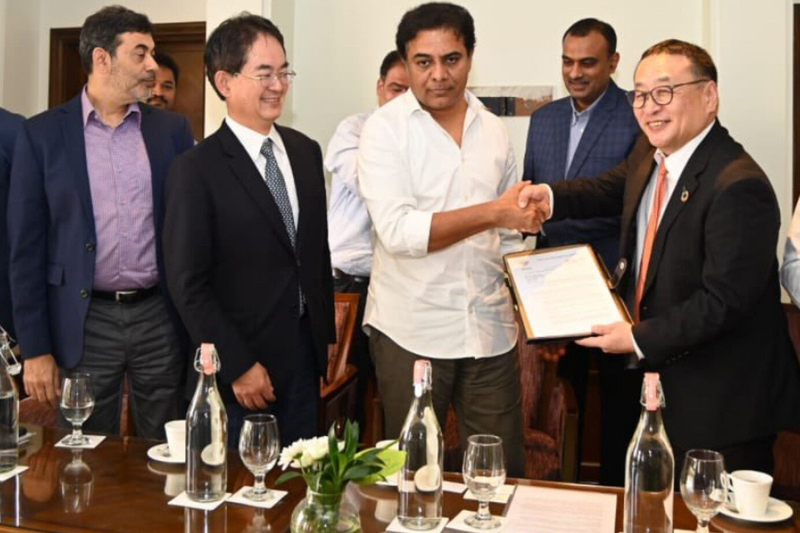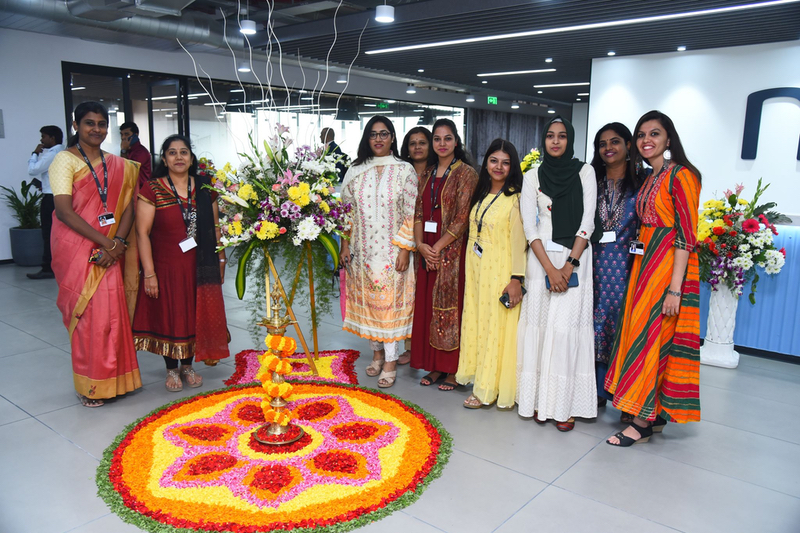Big news in recent months surrounded the selection of TATA Projects for Micron Technology’s historic 500,000 sqft semiconductor cleanroom in India. The advanced DRAM and NAND assembly and test facility projected to be worth $2.75 billion, is a part of India’s new push to be a hub of the semiconductor industry.
Making up the US $2.75 billion is $825m from Micron itself, and the rest is the government's “Modified Assembly, Testing, Marking and Packaging (ATMP) scheme and state incentives.
The major decision took years of discussion between Micron and the Indian government to agree, as Forbes India reported, and there may be others in the pipeline. And with a growing customer base, there will be more opportunities for service providers.
TATA is just one of the supporting companies that are looking to grow off of the back of this push. Nuvotec Projects has touted a few different semiconductor chip cleanroom builds on its LinkedIn page, being responsible for the facility’s HVAC systems. This growth led to the company receiving the “Most Promising Company Award for HVAC and Cleanroom System Integration” at the Nationwide Awards.
The major decision took years of discussion between Micron and the Indian government
The Indian subsidiary of Vietnamese Mirae Construction, Mirae Construction India will also be creating a cleanroom facility for Dreamtech Electronics to produce its highly sensitive Surface-mount technology (SMT) components that require strict air cleanliness standards, as well as temperature and pressure levels. Dreamtech supplies components to the world’s largest smartphone manufacturer, SAMSUNG, and the new facility will be a key part of its operations.
But the growth does not stop at the cleanroom design and build providers, it goes down to the equipment providers and beyond. This trickle-down effect can be seen perfectly with the collaboration between alfaTKG and Airtech Innovations. India-based alfaTKG is an expert in smart manufacturing and digital transformation solutions for the sheet metal manufacturing industries.
This year alfaTKG signed the cleanroom technology firm Airtech Innovations, who supplies air showers, FFUs, pass boxes, and table-top biosafety cabinets.
With Micron moving into town, this is momentum building that will be hugely impactful on the entire cleanroom supply chain.
Change is in the air
The HVAC sector is an established industry in India that will benefit hugely from more semiconductor projects being initiated.
In July, GradeZone Techno Solutions launched in Gujarat with its new services that focus on optimisation and energy-saving approaches for HVAC, BMS, and EMS solutions. Founder and HVAC expert, Pritesh Patel, said: "Our dedication is to enhancing HVAC system performance while reducing energy consumption. Leveraging advanced technologies and innovative strategies, we provide top-notch solutions driving efficiency, productivity, and sustainability.”
Nicomac Taikisha Clean Rooms has also announced plans to set up its third manufacturing facility in India to serve businesses in India, Japan, and Asia. Telangana Today reported that “[Nicomac] is proposing to set up a third manufacturing facility to expand its cleanroom production and to start producing HVAC systems by transferring technology from Japan”.
This is an example of technology being brought into the country to address new business. Time will only tell if this is a trend that will continue.

Nicomac Taikisha Clean Rooms plans new facility
Clean and green
If there is a buzzword within the cleanroom HVAC sector in India it is “green”. GradeZone has seen this trend and is looking to build on it. However, established companies are also looking to improve their services’ sustainability for clients. In the HVAC sector, cleanroom engineering expert Avant Garde Clean Room & Engg. Solutions (ACES) has founded a sustainability division to address HVAC performance. The new division has been formed to help companies who are having problems with achieving design performance in an existing HVAC system.
Worldwide, HVAC systems account for 40 – 50% of a building’s total energy consumption, contributing to 34.7 megatons of carbon dioxide emissions annually. This is no small amount, so any improvement would make a big difference.
This room is used for the measurement of the solar cell efficiency
ACES’ new service looks to provide survey and site audits, retro-commissioning, operation & maintenance, design and value engineering, retrofit solutions, measurement and verification, and remote monitoring.
ACES is also helping the green initiatives in another way. Last year, the company took on one of the largest vertically integrated solar manufacturing facilities in the world. This facility had a 250,000 sqft cell manufacturing line and contained ISO Class 6, Class 7, and Class 8 cleanrooms.
UHP Technologies was another company that took on a solar cell manufacturing project in 2023. The Bengaluru-based company completed the rebuild of the ISO Class 6 cleanroom with blackfilm used for the measurement of solar cell efficiency. “This room is used for the measurement of the solar cell efficiency in a dark room without the influence of light reflection,” said Manjunath Jyothinagar, Managing Director for UHP. “The room has a reflection of visible light R< 5 % range and a reflection of IR of R< 8 %.”
A nod to pharma
The other big cleanroom user in India is the pharmaceutical industry. The pharmaceutical industry in the country is well established, and their generics production is critical to the world’s functioning.
Denmark-based cleanroom engineer NNE opened a new office in Bangalore, India. The company is a major player in the pharmaceutical engineering landscape of India, internationally reporting $281m in revenue in 2022. The team in India for NNE is now over 500 employees. "This new workspace not only gives us more space to grow, it also creates a conducive environment for collaborating across our global offices. That means offering state-of-the-art amenities – and finding the best people," the company explained.
The industry is well-established in India. However, there have been a few issues creeping in recently, such as the recent cough syrup contamination that resulted in 141 children’s deaths worldwide. These are issues that are being taken seriously at higher levels as the country’s reputation needs to be upheld on an international scale.
This is where contamination control experts need to come in and turn things around.

NNE expands in Banglaore
In the last few days, India announced that they were going to mandate annual audit of pharmaceutical suppliers by drugmakers. Reuters reported that India's federal drug regulator, the Central Drugs Standard Control Organisation (CDSCO), conveyed the decision on mandatory audits for raw material and packaging material suppliers. The ruling comes with further instructions to drug manufacturers to keep track of the new ruling.
The audit would replace the self inspection standards that are currently in place and would ensure that the manufacturing quality control is done to a sufficient level.
Hopefully, this new ruling will stamp out any dangerous habits that were beginning to form and rebuild any lost international trust in the sector again.
A mixed bag
It is an interesting time for cleanroom suppliers in India, on the one hand, you have the beginnings of a semiconductor industry, while on the other you have the growing pains of the pharmaceutical one. The number of launches of new companies and new endeavours would indicate that there is a lot of opportunity here despite the mixed bag of the country’s industries though.
It will be interesting to see in the coming years whether this trend in growing cleanroom technology and HVAC firms will continue, and how the green trend’s impact will actually affect the carbon footprint of the growing industries.
For now, we can only wait and see, but cleanroom companies should keep an eye on the country and be ready to grasp any opportunity that might present itself!
